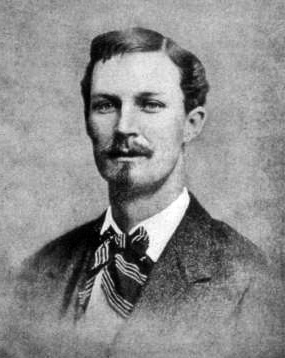
George Huntington
The Life and Legacy of George Huntington: Pioneer of Neurology
Introduction
George Huntington, born on April 9, 1850, in East Hampton, Long Island, New York, is renowned for his groundbreaking work in neurology, particularly his identification and documentation of a hereditary neurological disorder, now widely known as Huntington’s disease. His life story is one deeply influenced by family, education, and an enduring commitment to understanding medical science and contributing to his community.
Family and Early Life
Huntington grew up in a family steeped in medical tradition. His father, Dr. George Lee Huntington, and his grandfather, Dr. Abel Huntington, were both respected physicians, establishing a foundation of medical practice that George would follow. His mother, Mary Barker Huntington, and his two siblings rounded out a close-knit family whose values would leave a lasting mark on his life.
Education was a priority in the Huntington household, and George attended local schools in East Hampton before enrolling at a private academy. Surrounded by medicine from an early age, he was profoundly influenced by his family’s dedication to the field, which inspired him to pursue a career in healthcare.
Path to Medicine
George’s medical journey began in earnest when he attended the prestigious College of Physicians and Surgeons at Columbia University in New York, graduating with an MD degree in 1871. Soon after, he joined his father in medical practice, allowing him to gain valuable hands-on experience. This period served as the foundation of his career, where he honed his diagnostic skills and developed an affinity for treating complex neurological conditions.
Interests Outside of Work
Despite his demanding career, Huntington found time for various pursuits. A man of many interests, he was passionate about natural history, often spending time studying local flora and fauna. His love of nature extended to fishing and hunting, pastimes that allowed him to appreciate the rural landscapes of Long Island. Huntington also enjoyed gardening, maintaining a personal garden that reflected his interest in horticulture. An avid reader and writer, he produced numerous essays and articles on topics ranging from medicine to natural history, adding another layer to his intellectual pursuits.
He was also deeply involved in his community, participating in local health initiatives and mentoring young medical students. Huntington’s love of photography captured the beauty of natural landscapes, a creative hobby that complemented his scientific curiosity.
Marriage and Family Life
On October 5, 1874, George Huntington married Mary A. Hubbard, who came from a prominent family in East Hampton. Together, they raised three children and built a supportive home environment that valued education and community involvement. Mary was a steadfast partner, involved in local charity work and supportive of George’s medical career. Their home became a gathering place for friends, family, and community members, embodying the couple’s commitment to fostering connections and supporting one another.
Influences and Mentorship
The influence of Huntington’s father and grandfather was profound, instilling in him a lifelong dedication to medical practice. During his studies at Columbia, he was inspired by prominent professors, including the renowned neurologist Dr. Charles Dana. Additionally, the medical literature of his time, especially works by Dr. Oliver Wendell Holmes, shaped his approach to patient care and research.
His career was also enriched by interactions with fellow physicians and community cases, which provided him with unique insights into various medical conditions. His scientific curiosity was a driving force that spurred him to seek a deeper understanding of neurological disorders, ultimately leading to his defining contribution to medicine.
Defining Work: Huntington’s Disease
In 1872, George Huntington made a discovery that would cement his legacy in neurology. He published a seminal paper, “On Chorea,” in the Medical and Surgical Reporter, a Philadelphia-based journal. This work detailed a hereditary disorder characterized by involuntary movements, cognitive decline, and psychiatric symptoms, which he observed in multiple generations of local families. Huntington was one of the first to emphasize the genetic aspect of the disease, a groundbreaking insight that laid the foundation for future neurological research.
His meticulous observations of the disorder, which he initially referred to as “chorea,” became a gold standard for neurological diagnosis and research. Today, Huntington’s name is synonymous with the disease he so carefully documented, and his work remains a cornerstone in the study of genetic neurological disorders.
Legacy and Impact
George Huntington’s contributions to medicine extended beyond his groundbreaking research. His work on Huntington’s disease opened the door to further exploration in neurology, particularly concerning hereditary diseases. His life and career embodied a dedication to science, community, and family, and his legacy continues to influence modern medical research and treatment of neurological disorders.
George Huntington passed away on March 3, 1916, in Cairo, New York, leaving behind a rich legacy as a pioneer in neurology. His profound contributions to medical science and his deep connection to his community and family continue to inspire future generations in the field of medicine.
